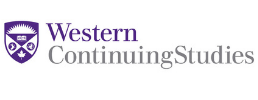What is Cultural Safety?
The concept of cultural safety emerged in New Zealand during the 1980s as a framework for responding to unequal access to health services by Indigenous Maori people. As defined by Indigenous rights leaders at the time, culturally safe practices recognize and respect the identities of others and meet their needs, rights and expectations. Culturally unsafe practices diminish, demean or disempower the cultural identity of an individual.
While the idea of cultural safety arose as a response to health care inequalities, it is important in a much larger context. For organizations, fostering cultural safety in the modern workplace involves recognizing the unique and diverse identities of their employees and clients, and developing safeguards and processes to protect the expression of these identities.
Creating a culturally safe workplace for Indigenous employees, involves creating a space where Indigenous team members feel secure in their work environment and are given the ability to flourish. It also means using Indigenous frameworks and concepts to welcome Indigenous clients so they feel safe to participate and access services and/or programs.
To achieve the outcome of becoming a more culturally safe organization, we need to have culturally competent individuals who are supported by intentional structures and effective processes. We need to think about the systems and structures that we have in place and how they may be harmful to and unwelcoming to Indigenous communities.
While this workshop will have an emphasis on creating a culturally safe environment for Indigenous individuals, there will also be a broader equity lens that can be applied to creating workplaces that feel safe and welcoming to all.
Learning Outcomes
-
How your organization can lead systems transformation through organizational improvements in partnership with Indigenous clients, volunteers and staff
-
Learn about and how to implement Indigenous-centered frameworks, structures and concepts to create more culturally safe workplaces
-
Gain concrete and practical tools to enable people-centred culture, effective engagement activities and positive experiences for Indigenous individuals that you work with or support
NOTE: Do you have any specific questions or topics that you would like the presenter to cover during this workshop? Please email them to sgergich@pillarnonprofit.ca
TARGET AUDIENCE: Human Resource professionals, Executive Directors, board members and/or senior management. Those with a desire to make changes in their organization and commit to authentic reconciliation and action.
ADDITIONAL INVESTMENT INFORMATION:
Are you a nonprofit member organization with an operating budget of under $100,000? You may be able to save an additional 50% off the registration fee.
Learn if you are eligible for the NONPROFIT MEMBER DISCOUNT RATE.
ABOUT THE PRESENTER:
Joe Antone
Joe is an Indigenous social worker and Manager of Health Equity and Indigenous Reconciliation at the Middlesex London Health Unit. Joe grew up in London, and his home First Nation is Oneida Nation of the Thames. Joe shares his life with his partner Ashley, 5 year old daughter Addy, and 3 year old son Huxley. Joe’s professional interests centre on Indigenous Health, mental health and addictions, systems change work, and community development.
Learn more about the Taking Action on Reconciliation: An Organizational Plan for the Middlesex-London Health Unit
Thank You To Our 2021 Learning & Development Sponsor:

